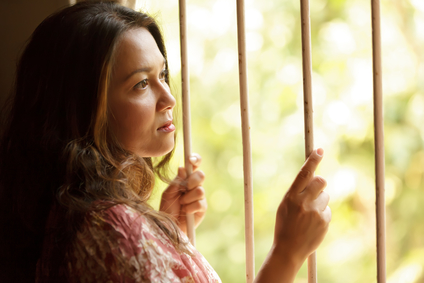The holiday season is the time of year when people in Michigan and across the country come together with friends and loved ones to celebrate traditions and connect with family. These special traditions can make handling loss during the holidays especially difficult. Whether you have just lost someone special to you, or are remembering lost loved ones from years earlier, grief and mourning can make this season feel like anything but “the most wonderful time of the year.”
Why Loss Hurts More During the Holidays
Grief is a process. There is no predictable timetable or pattern for mourning, but it does generally improve over time. Still, even after you have processed the loss of a loved one, you may experience renewed grief during the holiday season.
The holidays are full of rituals and traditions shared with family and loved ones. From Thanksgiving dinner to New Year’s Eve toasts, the season is full of special events that only come once a year. These traditions stir up memories that are often dormant in other seasons. They serve as reminders of what you have lost. Handling loss during the holidays often means coming to grips with a person’s absence at the dinner table or remembering their role in the family’s holiday traditions. The holidays also invite you to set aside time to be with the ones you love. This can make a loved one’s absence more obvious and keep you from distracting yourself through busyness.
Get Help Handling Loss During the Holidays
Talk to a psychotherapist today to plan coping strategies for grief and mourning this holiday season.
Recognizing the Symptoms of Grief
No two people grieve the loss of a person the same way. Everything from your personality to your relationship with the deceased can affect the way you feel, and how it is expressed. But recognizing the symptoms of grief can help you acknowledge when you need to step away and can help you move through mourning more quickly. Grief can cause you to:
- Feel strong emotions
- Experience mood swings
- Tire easily or feel fatigued
- Have problems eating
- Face insomnia or tiredness
- Experience headaches
- Be susceptible to illness
- Struggle to concentrate
- Struggle to tolerate minor frustrations or irritations
Ways to Grieve During the Holiday Season
When you know you will be handling loss during the holidays, it can be helpful to plan healthy ways to grieve. You don’t have to suffer through the holiday season alone. When you are struggling with loss, you can take steps to meaningfully grieve and protect yourself from demands that may be more than you can handle.
Plan Ahead for Grief
Talk to your loved ones about any celebrations or traditions you feel anxious about or that trigger feelings of grief. Decide together how you want to celebrate this year. You might cut back on traditions that are especially painful, or add a time to specifically honor your lost loved one.
Set Boundaries
Be upfront with the people you are celebrating with about your feelings and your physical limitations related to your grief. Don’t feel like you have to do everything, or explain your priorities in choosing one party or family activity over another. You don’t have to isolate yourself either, though. Instead, focus on the holiday experiences that bring you the most joy.
Prepare an Escape Route
Grief can come on suddenly and become overwhelming at unexpected times. Plan to allow yourself ways to escape or bow out of events if the loss becomes intense. For example, you might drive yourself to a party so you can leave at any time. You might also choose to rent a motel room rather than stay with family so you can spend time alone.
Find Support Through Holiday Loss
Grief and loss can make you feel alone even when you are surrounded by friends and family. It is important to remember that there is support available to you, but it may not come from within the family tree. When a family member dies, each relative mourns the loss in their own way. This means your closest family may not be the right people to turn to for support.
Instead, consider attending a grief support group. There are also so-called “Blue Christmas” services that recognize the sadness in the season. You may also want to engage a psychotherapist for short-term grief therapy, giving you a place and a time to express and work through your grief.
David Stanislaw is a psychotherapist with over 30 years of experience. He helps adults, teens, and children, with bereavement and other psychiatric issues. Contact David Stanislaw to get help today.


 Common Treatments for Depression
Common Treatments for Depression Are Childhood Family Patterns Affecting Your Marriage?
Are Childhood Family Patterns Affecting Your Marriage? 7 Ways Therapy Can Make You a Better Parent
7 Ways Therapy Can Make You a Better Parent